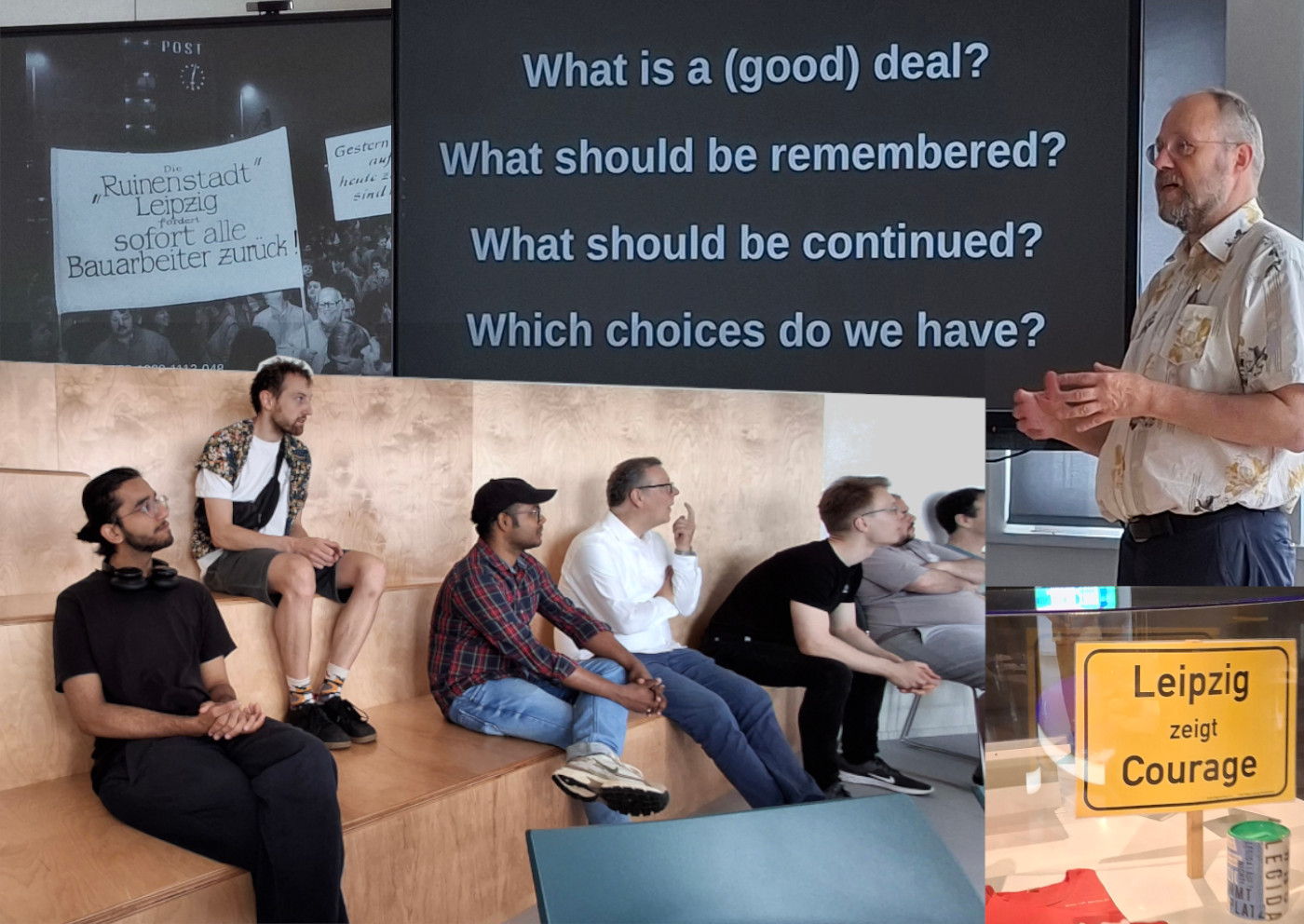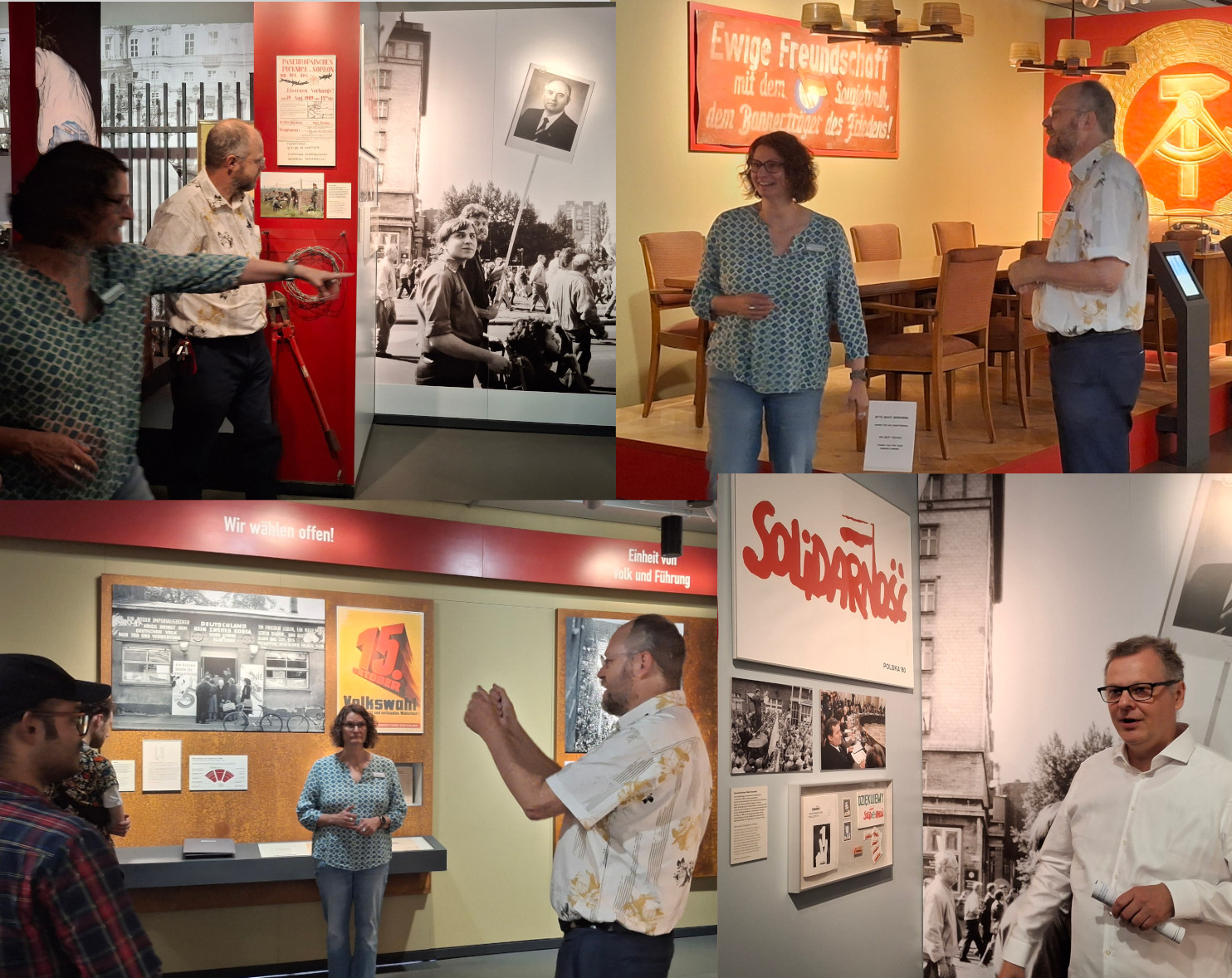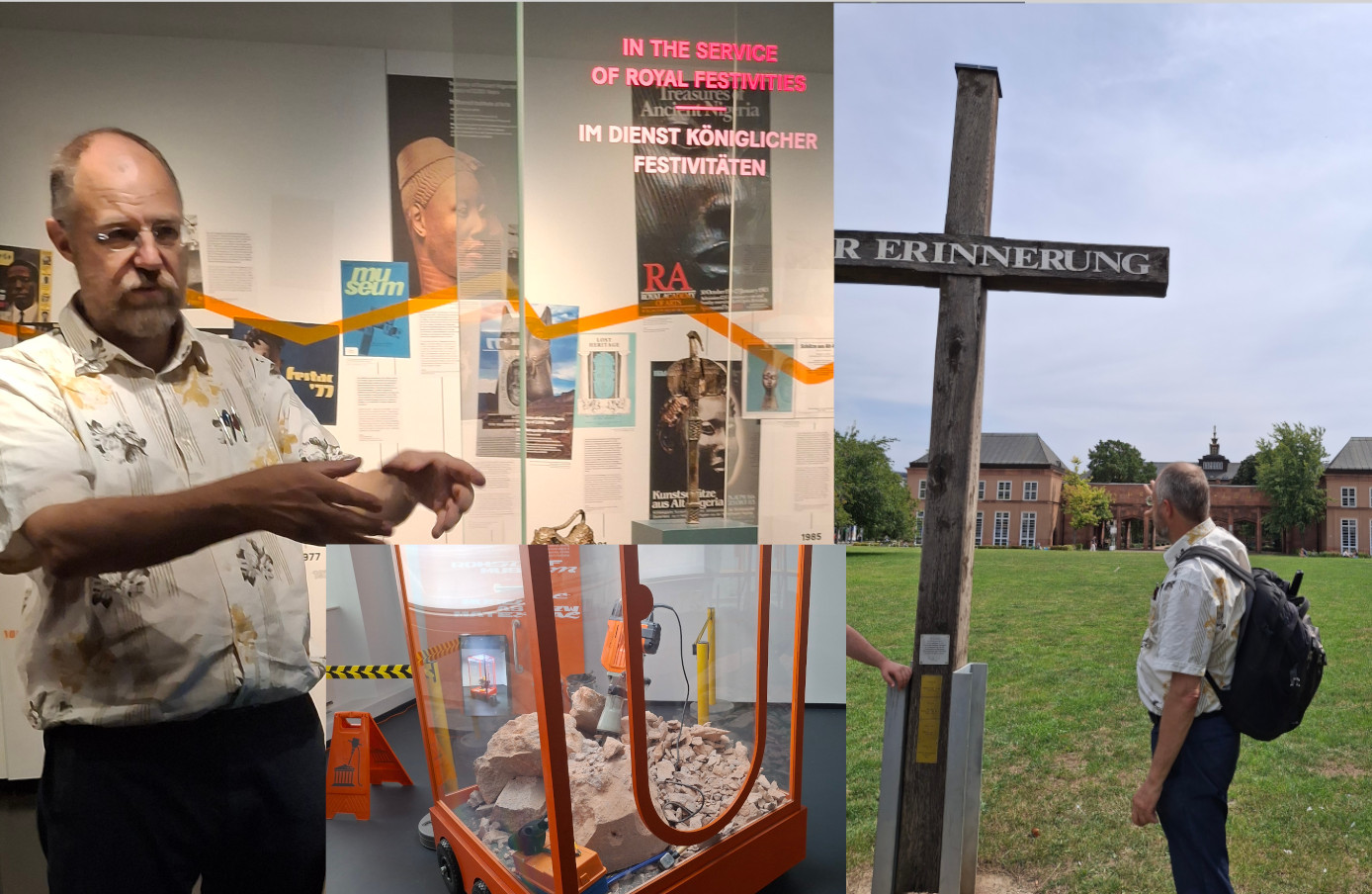Making Deals Great Again
Team WissensSpuren
On the 9th of August 2025 we explored the history of great deals and their impacts on the population of Leipzig.
Historical Context
We began the tour with an introduction at the Forum of Contemporary History Leipzig starting from the music video of the Scorpions world hit Wind of Change:
- Why did this song resonate so strongly 35 years ago?
- What energized the crowds?
- What were people hoping for?
- What treatment did the inhabitants of Leipzig face before the Wall came down?
- How did people in Western Germany experience the second half of the 20th century?
- What about our Polish neighbors in the East?

Introductory session. Photo: Team WissensSpuren.
The introduction interspersed with personal testimonies from the perspective of students in Leipzig, as well as from Western Europe and Poland. In the end we even broadened the perspective to include different perspectives on political developments in the Middle East and the Indian subcontinent.
Authoritarian regimes — and their downfall
Following the introduction we visited the permanent exhibition of the Forum of Contemporary History Leipzig.
We learned about the political instruments of oppression used by authoritarian regimes, how they were implemented in the GDR, and how the local population coped with them. We examined how visitors from the West and dissidents were exploited to obtain Western currencies. We explored how democratic structures and personal spaces in the churches inspired networks of citizens to consider alternative ways of life. How a Polish pope and poor working conditions led to the founding of the Polish trade union Solidarność, and how it was dismantled under martial law. Eventually, we saw how the Peaceful Revolution thoroughly disrupted the post war political and social structures.

Guided tour in the permanent exhibition of the Forum of Contemporary History Leipzig. Photo: Team WissensSpuren.
Our next stop was the backyard of the Neues Augusteum. In front of the Leibniz memorial right in the middle between the Institute of Mathematics and the Faculty of Economics and Management Science we had a look into Jean-Jacques Rousseau’s concept of general will (volonté générale), the Tragedy of the Commons, and how its reformulation in terms of game theory sheds light on the Paradox of Wealth. Could the financial imbalance be addressed through the re-installment of Jubilee years where debts are periodically forgiven and property is returned to primary owners? After all, this practice is said to have contributed largely to the stability of Ancient Near Eastern societies. Participants are invited to develop their intuition by a NetLogo agent-based simulation model with its source code available here.
Colonialism, Looting, and Restitution
During the 19th century upper class families amassed large collections of objects taken from colonies through looting and dubious contracts. Provenance Research seeks to identify the origin of the objects, their roles and significance in the original societies, and to take steps toward restitution when applicable.

Trip to the Grassi and its REINVENTING GRASSI.SDK. Photo: Team WissensSpuren.
The Grassi Museums for Ethnology conducts research as part of its efforts towards decolonization documented in its REINVENTING GRASSI.SDK-program. We walked through the exhibition of the Moving Mountains project, and we spent some time in the section addressing the interactions between African artists and the museum staff during the process of repatriating Benin Bronzes.
For me this shift from the colonial officers’ disregard for native people to genuine exchanges on equal footing is a key example of the evolution of human rights since the adoption of the Universal Declaration of Human Rights by the UN in December 1948. However, it remains to be seen what will result from the current call for more arms and less international cooperation in response to rising tensions between nations around the globe, and the polemics against migration and crime that promote a sense of security at the expense of civil and human rights.
Polish-Saxonian Relations
Finally, we visited the Polish Institute Berlin – Branch Office Leipzig, where we received a thorough introduction to the complex history of Poland and its relationship to Saxony. A highlight for the city of Leipzig was the second career of Józef Aleksander Jabłonowski. Until his mid 50s he was an eminent political figure in Poland who narrowly lost the election to become the Polish king. Subsequently, he moved to Leipzig where he chose to become a scholar and patron of the arts and sciences. He established an highly endowed award and founded the Societas Jabłonoviana zu Leipzig which eventually gave rise to the Saxon Academy of Sciences and Humanities in Leipzig.
Our final discussions addresseed the prospects of political activism, and the importance of engagement in the civil society, the arts and sciences.
We are immensely grateful to Yvonne Walter (Forum of Contemporary History Leipzig) and Bernd Karwen (Polish Institute Berlin – Branch Office Leipzig) for generously sharing their vast knowledge about the contemporary history of Leipzig and about the connections between Poland, Germany, Saxony, and Leipzig.